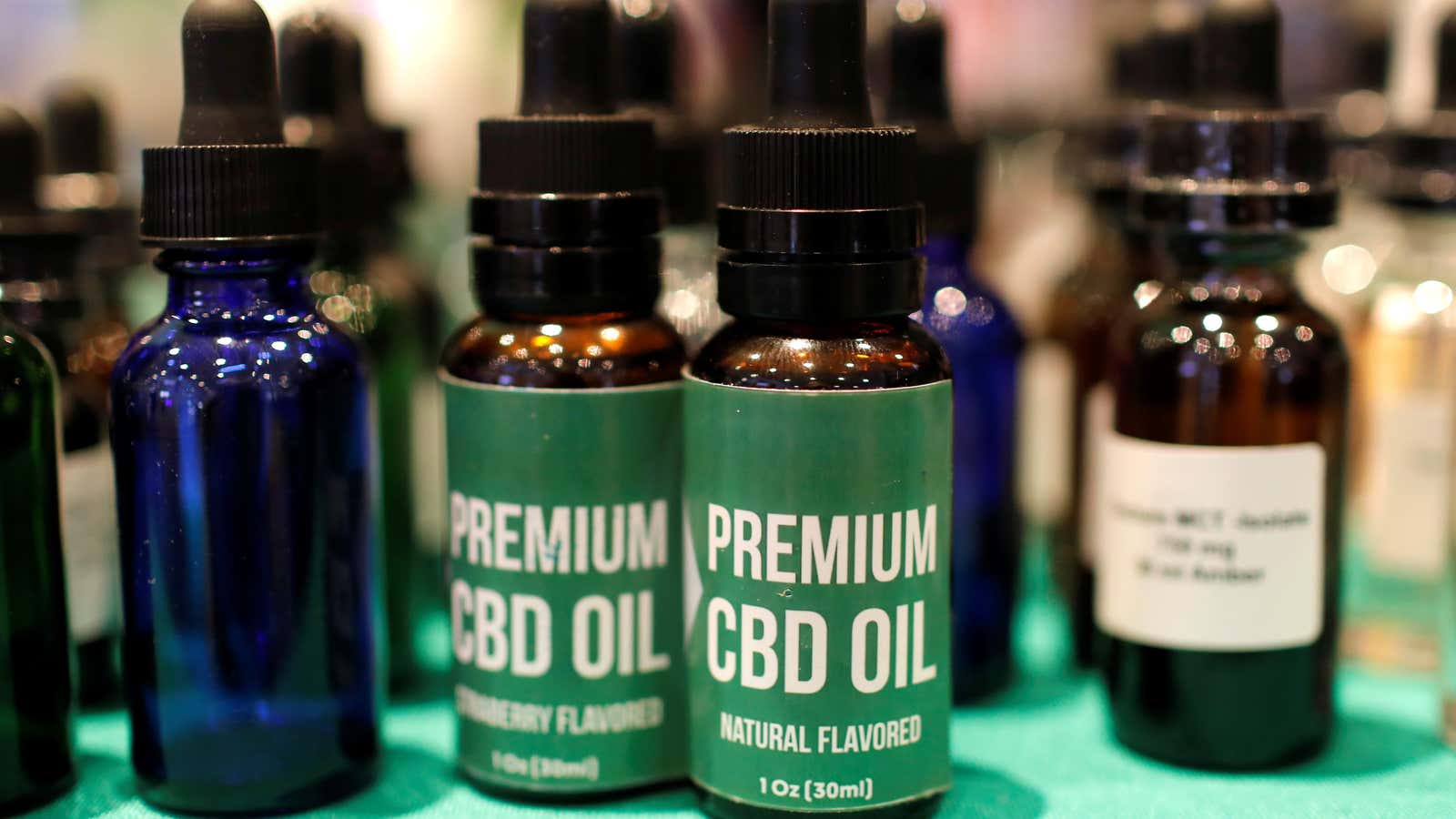Cannabidiol, or CBD, as the cannabis-derived compound is known, is enormously popular in the US, embraced as a panacea for the modern condition. The Brightfield Group, a research firm focused specifically on the cannabis industry, pegged the US hemp-derived CBD market in 2018 at $590 million, and predicts that number will increase tenfold by the end of this year, to $5.7 billion.
It expects the market could balloon to a whopping $22 billion by 2022—assuming that the US Food and Drug Administration (FDA) gets on board.
Stakeholders in this booming industry have the chance to formally make their cases for the value of CBD, and to tell the FDA how they think it should—and shouldn’t—be regulated, at the agency’s first public hearing on the topic today (May 31). More than 110 of them have signed up to do so. Interested viewers can watch a livestream of the hearing on the FDA’s website or on the YouTube channel of Fox Business.
While CBD sales are skyrocketing, government agencies are taking incremental steps toward regulating the industry, leaving operators and consumers alike in a legal grey area. The 2018 Farm Bill removed hemp-derived CBD—that’s CBD from cannabis containing less than 0.3% THC, according to the US government—from the Controlled Substances Act, essentially declassifying it as a dangerous controlled substance of no medical use and making it legal under federal law, under some circumstances. It also clarified its status as an agricultural product, making benefits such as crop insurance available to hemp farmers.
As soon as the Farm Bill passed, FDA commissioner Scott Gottlieb issued a statement reminding Americans that the FDA was still in charge of regulating food, drugs, and cosmetics, including those containing CBD. That meant that aside from GW Pharmaceuticals—the marketers of the single FDA-approved drug containing CBD—CBD producers making therapeutic claims, selling CBD in food products across interstate lines, or marketing CBD as a dietary supplement were doing so in violation of the law. But the FDA has thus far only gone after companies making especially egregious claims. And Gottlieb also stated the FDA’s intent to find “legal pathways” for CBD, and to “make these legal pathways more predictable and efficient.”
In other words, the FDA recognized that “CBD now is too big to fail,” as Jonathan Miller, general counsel for the trade group US Hemp Roundtable told Quartz in December. (Earlier this week the Transportation Security Administration, or TSA, also recognized the distinction between cannabis and hemp-derived CBD.)
Miller, whose group represents CBD brands including Lord Jones, Charlotte’s Web, and CV Sciences, is among the many who will address the agency today. He’ll be joined by scientists, consumer advocates, health professionals, patients, retailers, manufacturers, medical researchers, agricultural experts, and scientists—and that’s all before the one-hour lunch-break. The marathon schedule of stakeholders demonstrates this molecule’s potentially massive impact on US health, culture, and corporate bottom lines.
A docket for public input has also amassed some 800 comments, many of which appear to be personal testimonials from patients who claim CBD has helped them avoid using more powerful prescription painkillers or sleep aids.
Miller says he doesn’t expect anything conclusive to come from today’s hearing—“I think it’s going to be more a time for them to listen,” he says—but that it is an important first step toward formally recognizing hemp-derived CBD as a dietary supplement or food additive. That step could “once and for all establish the legality of all the CBD products that people are purchasing,” he says, and “unleash what’s projected to be a multi-multi-billion-dollar industry.”
